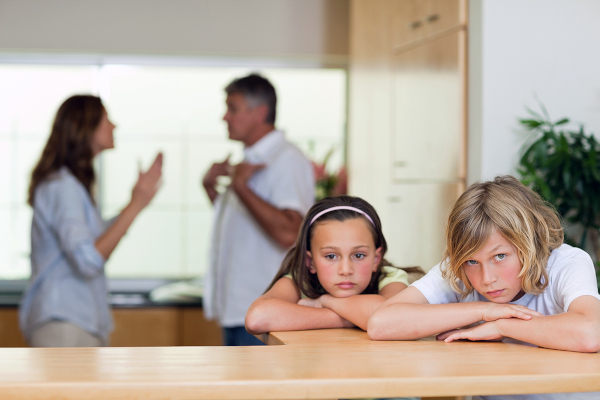
It’s no surprise that the holidays bring any martial stress to light. January 6th is affectionately dubbed “Divorce Day” since “Divorce” is the most Google’d search on that day. January is also known as divorce month as family law attorneys are often taking intake calls to begin the divorce process during that month. The influx of divorce filings caused January to evolve into National Child-Centered Divorce Awareness Month.
Child-Centered Divorce Awareness Month serves as a reminder to parents getting a divorce that it is not just them that is divorcing. Children are highly impressionable and are impacted tremendously by divorce, and parents have the choice to choose a path to go through this life change in a way that will minimize the damage or harm the children will experience.
In the hierarchy of sources of stress, divorce is number two behind death. It would be naïve for parents to believe the spouses are the only ones affected by a divorce. There is a compiled list of 20 Divorce Rules that children have said about their needs during their parents’ divorce. Out of the mouths of babes!
Children are the true wealth of the family. Parents must think about how to approach their divorce to keep the entire family unit in mind. Here are some options to consider:
Your Divorce Options
The effect of divorce on the children will inevitably be impacted by the divorce option you choose. It is generally either Litigation, Mediation, or Collaborative Divorce.
Litigation
Litigation’s outcome can be somewhat controllable if you have a good professional team. Litigators and people who feel they must have their fight in court oftentimes forget about the damage to the children because winning the fight becomes the most important thing.
Mediation and Collaborative Divorce
There are two alternatives to what people see as a traditional litigated divorce. One is Collaborative Divorce and the other is Mediation, and both of these options are much more focused on understanding the interests of each party. The common thread in these alternatives is that both parents share the same interest in their children. They understand the importance of their choices and behaviors to the wellbeing of the children, and everyone will come out of the divorce better because they have maintained the integrity of the family, even if it is a different family unit.
Child-Centered Collaborative Divorce
When it comes to issues regarding children, there are a few ways to approach it in a more child-focused way. In the Collaborative Divorce model, each parent will have a divorce coach who focuses on two things, communication skills to get you through the divorce in the most positive way possible and helping you develop a parenting plan. There are also opportunities to bring in a child specialist, whose role is to hear the child’s perspective and let the children’s voice be communicated to the parents, which will then help them develop a co-parenting plan.
Frankly, if you choose the collaborative model, the probability of success is very high, and it is often a positive experience. Children learn from what they see, and if parents are modeling amicable behavior, positive behavior between each other, that will make a positive impression upon them.
You can approach divorce in a way that will not cause lifelong harm to your children, and it is so important for us to reflect upon this, particularly in January. Have a Happy New Year, and if you are considering divorce, focus on a child centered divorce process by choosing to divorce differently through Collaborative Divorce.


